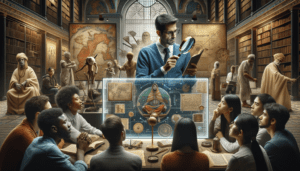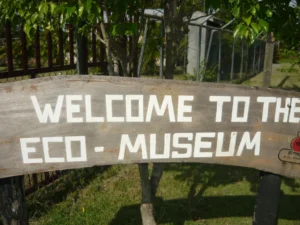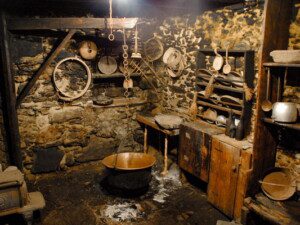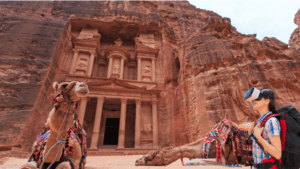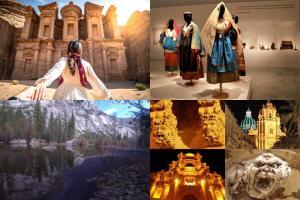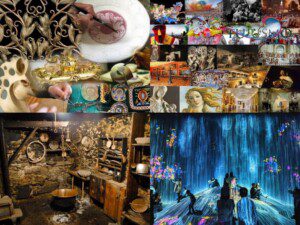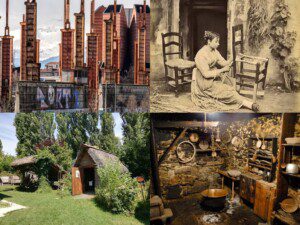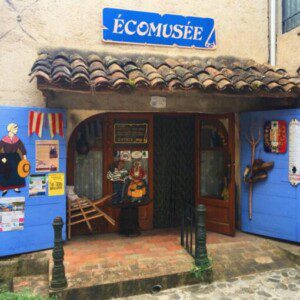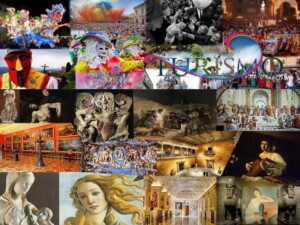Experiential Consultant (Tourism and Experiential Marketing): Reference scheme
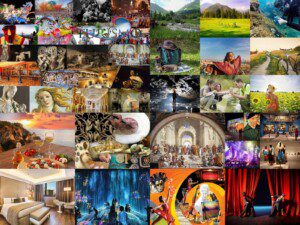
Scheme C) Unregulated profession built without regulatory references.
The reference scheme is based on the 'modelSkills Cycle' and is in line with the 'Tourism, Arts, Heritage Competence Framework (TAH-CF)'. the TAH-CF is defined in accordance with the European Qualifications Framework (EQF), the Recommendation of the European Parliament and of the Council 2009/C 155/02 (ECVET) and the APNR (Non-Regulated Professional Activities) scheme adopted by UNI for the technical standardization of unregulated professions.”
Description
PSTES2: Experiential Consultant (Tourism and Experiential Marketing)
The Experiential Consultant is a professional figure, with a highly specialized content, who possesses specific skills to carry out activities of:
- Analysis of the services provided and the reference context
- Evaluation of the applicability of Experiential Quality Factors
- Transformation of services into experiential offers
- Documentation of the Experiential Offers
- Evaluation of the Quality of Experiential Offers
- Improvement of the Quality of Experiential Offerings
The Experiential Consultant usually carries out activities as an Expert/Consultant in the various reference sectors.
Based on the type of deepening of knowledge, he can operate in the following specialist areas:
- Tourist area: Consultant for Experiential Tourism
- Commercial area: Experiential Marketing Consultant
In order to take into account the different specializations linked to the different sectors to which the experiential offers are applicable, the different activities indicated in the Repertoire of Experiential Activities
Note:
- The professional who has the preparation to carry out the activities associated with any sector in which experiential offers are offered is considered an Experience Specialist.
- The various specializations are not to be considered distinct in an absolute sense or incompatible with each other, as they differ only in certain operational and sectoral aspects.
- It is assumed that the various specialist figures have adequate knowledge of the sector in which they intend to operate
Nota: By virtue of the skills possessed in the context of one's professional activity, the following professional figures are also included among the Experiential consultants, with specialization in their field of reference
- Experience Director (Experiential Tourism Manager)
- Events Manager
- Interpreter of the Cultural Heritage
Standards of Reference
- European Qualification Framework (EQF)
- Recommendation 2009 / C 155/02 (European Credit System for Vocational Education and Training - ECVET)
- Law 4/2013 relating to non-regulated professions
Specific tasks and activities
The specific tasks and activities are listed below, associating the skill requirements for each specific task or activity.
Fundamental tasks and specific activities for all specialist profiles
- T1: Analyze the Reference Context
- T2: Evaluate the application of Experiential Quality Factors and transform services into Experiential Offers
- T3: Documenting Experiential Offerings
- T4: Evaluation of the Quality of Experiential Offerings
Skills, Knowledge and Autonomy and Responsibility (Skills)
Note: The competences necessary for a profession, which include skills and knowledge, constitute a dynamic whole. These may vary depending on specific territorial contexts and are subject to changes over time due to factors such as technological evolution or other sectoral developments. Therefore, the examples of skills and knowledge presented here are to be considered indicative and not exhaustive, and will be subjected to constant revisions and updates.
T1: Analyze the Reference Context
- Ability
- SQ1: Analysis skills
- SQ2: Ability to synthesize
- SP15: Analyze the experiential question
- Additional required knowledge:
- KS3: Experiential Tourism
- KS6: Nature Tourism
- KS7: Cultural Tourism
- KS8: Food and Wine Tourism
- KS9: Seaside Tourism
- KS12: Thermal and Wellness Tourism
- KS13: Religious Tourism
- KS14: Arts and Entertainment Tourism
- KS15: Rural Tourism and Agritourism
- KS29: Tourism Marketing
-
- T2: Evaluate the application of Experiential Quality Factors ettransforming services into Experiential Offers
- Ability
- SQ10: Analyzing the explicit, implicit and binding requirements of users
- SP11: Identify and evaluate the applicability of experiential techniques and methodologies in the reference operating context
- SP111: Evaluate the applicability of the Experiential Quality Mark
- Additional required knowledge:
- KS93: Characteristics of Experiences
- KS349: Experiential techniques and methodologies in the reference sector of Experiential Offers
- KQ22: Quality Management - Factors (dimensions) and quality indicators
- KQ33: Quality Management - Stakeholder Requirements Analysis
- KQ1: Quality Management
- KQ22: Quality Management - Factors (dimensions) and quality indicators
- KQ11: Quality Management - Design and development;
- KS95: Designing Experiences
- KS139: Management Systems of Experiential Offers (SGOE)
- KQ7: Quality Management - Planning and monitoring of the service
- KQ5: Quality Management - The management of human resources
- KQ8: Quality Management - The procurement system
- KS102: Theater as a model for staging experiential events
- KQ13: Quality Management - Monitoring and measurement of processes and services
- KQ14: Quality Management - The Management of Non-Conformities and Corrective Actions
- KQ35: Quality Management - Continuous Improvement
- KS350: The Experiential Quality Mark
T3: Documenting Experiential Offerings
- Ability
- SP112: Prepare the "Experience Report
- Additional required knowledge:
- KS349: The Experiential Relationship
- KS350: The Experiential Quality Mark
T4: Evaluation of the Quality of Experiential Offerings
- Ability
- SP10: Apply tools for measuring and evaluating experiential offerings
- Additional required knowledge:
- KS94: Evaluation of Experiences
Autonomy and Responsibility: Sixth EQF level
Profile Evaluation Criteria
For the attestation of possession of the requisites of competences, skills and knowledge related to the profession of Experiential Events Manager, it is proposed to take into consideration methodologies that take into account the following aspects in a non-mutually exclusive way, i.e. possibly in combination with each other :
- Qualifications issued in the academic field (Formal Learning)
- Specific training (Non-formal learning)
- Work or professional experience (Informal learning)
Requirements for access to the professional figure
Since the professional figure is not organized in an order or college, the requirements may vary based on the relevant Professional Association or other criteria established by the individual interested parties. Below are the requirements adopted by AITOC - Italian Association of Tourism Professionals and Cultural Operators.
Reference diagram: SP/TAH-CF/PSTES2 scheme
- Have attended specific training courses for the professional figure in question organized/recognized by Universities, Regions or Professional Associations established pursuant to Law 4/2013 and recognized by the MISE and at least six months, even non-continuous, of proven work or professional experience in the reference sector in the capacity of Consultant for Experiential Quality
Or
- Be included in the Registers of Professional Associations established pursuant to Law 4/2013 and recognized by the MISE as long as they refer to the competence in question
Or
- Secondary school diploma and at least three years, even non-continuous, of proven work or professional experience in the reference sector in the role of Experiential Consultant
Or
- At least 5 years of proven work or professional experience in the reference sector as an Experiential Consultant
The following professionals are also recognized as Experiential Consultants provided they are included in the Registers of Professional Associations established pursuant to law 4/2013 and recognized by the MISE
- Experiential Tourism Manager (Experience Director)
- Interpreter of the Cultural Heritage
Related searches on the Skills Archive Databases (UNDER IMPLEMENTATION)
Featured training
Basic courses
Thematic courses on the Design of Experiences
Courses with Professionalizing Certification pursuant to Law 4/2013





